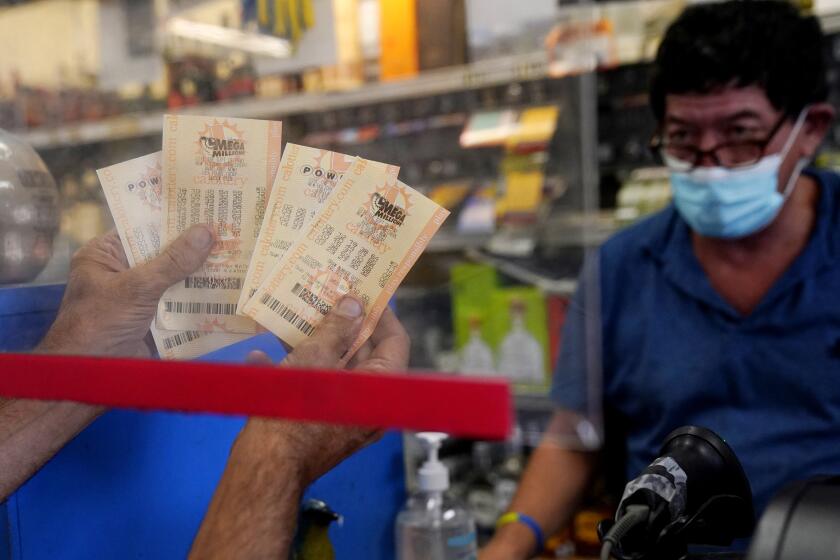Church Grapples With Priests’ Sexual Misconduct
- Share via
CHICAGO — When Cardinal Joseph Bernardin apologized publicly last week for mistakes made in the case of a priest here accused of sexual misconduct, he underscored the complexity of the problem and the church’s uncertainty in how to deal with it, according to several experts.
Bernardin issued an apology to the church at large and another to angry members of St. Odilo’s Church, who had learned recently that their former pastor left his post after being accused of sexual misconduct with a minor.
At the time of the priest’s departure last summer, the congregation had been told only that the move, requested by the archdiocese, was for “personal reasons.”
The congregation learned last week that the priest, Father Robert E. Mayer, had been previously accused of sexual misconduct with minors. He had been appointed pastor of St. Odilo’s with the stipulation that he avoid meeting alone with anyone under the age of 21, according to Sister Joy Clough, archdiocesan spokeswoman. Mayer was appointed pastor of St. Odilo’s after undergoing an archdiocesan “procedure” for priests accused of child sexual abuse, Clough said.
Experts say the case demonstrates a thicket of conflicting legal rights that must be protected and pastoral duties that church leaders must exercise, not only toward the accused, but also toward alleged victims and the church at large.
For Gary Schoener, an expert on the subject, the case also illustrates how far the church has to go in gaining an understanding of the problem. Schoener is executive director of the Walk-In Counseling Center in Minneapolis, which has handled hundreds of cases involving sexual abuse by clergy, including many Catholic priests.
While Bernardin’s open apology to the church and his admission of mistakes is clearly different from the secrecy of the past, Schoener questions the archdiocese’s “procedure,” particularly the decision to appoint Mayer a pastor.
“Should he be in the parish? Of course not. How the hell can you keep the pastor away from kids?” Schoener asked.
Procedures like the one in Chicago also rely on psychological evaluations that might be severely deficient or downright wrong, Schoener said. Even thorough, state-of-the-art evaluations give no clear guidelines when it comes to deciding what a priest should be allowed to do.
Wide public awareness of clerics’ sexual abuse of children is less than a decade old. “We’re all just struggling with this,” he said. “The problem in its public phase is so new.”
Father Stephen Rossetti, a Catholic priest and clinical psychologist who has written extensively about child sexual abuse, said inequities are unavoidable when a priest, as in the case of any public figure, is accused of something such as molesting children. The identity of the accused becomes known, he said, with the inherent risk that the accusation may be false. If the church attempts to keep the accusation quiet, it can be accused of being insensitive to the victim.
The church, he said, “is still learning what works and what doesn’t work,” in handling such cases. He views Bernardin’s public apology as a good sign.
“That’s a good move. It says the church is finally realizing it has to respond quickly” to the concerns of alleged victims and congregations.
In his letter to all parishes in his archdiocese, Bernardin recounted the steps that the church in Chicago, in cooperation with experts, has undertaken to deal with priests’ sexual abuse of children. The programs and procedures developed were “effective and helpful,” he said. “But, despite our conscientious efforts, we have made mistakes, for which I am deeply sorry.”
Bernardin also announced the immediate appointment of a three-member commission--including a juvenile court judge, a former adviser to the state department for children and family services and an auxiliary bishop with a strong background in psychology--to review archdiocesan policies.
“I have directed the commission to address specifically the question of whether and under what circumstances a priest--against whom accusations of sexual misconduct have been lodged--could engage in parish ministry.”
In a separate letter to the parishioners at St. Odilo, he wrote: “I feel responsible and want to apologize to all of you for the hurt that has come to your parish and our failure to prevent that hurt. In hindsight, the appointment of Fr. Mayer, as carefully as it was made, was a mistake. It has caused all of us great pain.”
The appointment of the panel may represent another step in the process of dealing with sex abuse by Catholic clergy, a topic that has caused great pain in congregations and confounded church leaders throughout the United States in the last decade. In addition, some dioceses have already paid enormous sums of money in settlements to victims of abuse.
Dr. Rita McDonald, a clinical psychologist in Milwaukee who was a consultant to the Archdiocese of Milwaukee when it began developing a program in the 1980s to combat sex abuse by priests, said, “The basic question is why is this problem occurring.”
She said that while sexual abuse cases involving priests and children certainly have occurred in other eras of church history, “my own personal impression is that the number is increasing.”
More to Read
Sign up for Essential California
The most important California stories and recommendations in your inbox every morning.
You may occasionally receive promotional content from the Los Angeles Times.













